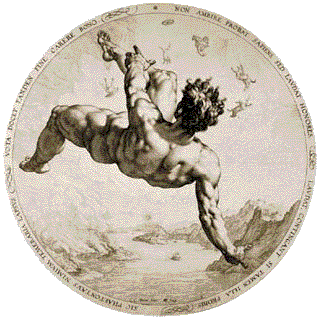first edition
1805 · Boston
by Warren, Mrs. Mercy
Boston: Printed by Manning and Loring, for E. Larkin, 1805. First Edition. Fair. 3 vols., 8vo. xii, 447; vii, [1], 412; vi pp., 1 f. (blank), 475 pp., browning and foxing throughout. Nineteenth-century quarter buckram over marbled boards, WORN, front board of vol. 1 reattached, some binder's blanks detached or starting, NUMEROUS ex-library stamps throughout each volume: "DeMilt Bequest 1845," standard library markings including accession stamps and circulation slips, 19th-century paper book covers from the General Society of Mechanics and Tradesmen of New York (see below). Not pretty, but an interesting, complete, and correctly priced set. THIS IS THE FIRST IMPORTANT HISTORICAL WORK WRITTEN BY AN AMERICAN WOMAN. "[Warren's] history is interesting both for the expert knowledge it reveals of public affairs and for its lively and penetrating commentary upon the leading figures of the day, more especially for the caustic analysis of character and motives among the 'malignant party' who opposed American freedom" (DAB). It is important to note that the author, herself an American revolutionary, was personally acquainted with a number of key figures about whom she writes herein, such as her (former) friend John Adams, and she spared no criticism of him or others. Warren was not only a first-generation historian of the Revolution, she was a penetrating social and political critic.
Indeed, despite its occasionally critical treatments of the Federalist, "Warren's 'History' is considerably more optimistic about the chances for the survival of American republicanism than her earlier statements had been: for example, her support for the federal Constitution, which she had opposed in the 1780s, was unstinting in the History. Even with this more equable view of the first years of the republic, however, Warren's essential differences from the Federalist approach remained unmistakable: she never stopped insisting that true liberty could only be the expression of a virtuous citizenry, and could not be managed or maintained through merely institutional manipulation" (ANB).
PROVENANCE: Benjamin DeMilt (1780-1835), New York City silversmith, president of the General Society of Mechanics and Tradesmen of the City of New York (in 1830) -- his bequest, to the Apprentices' Library of New York City (as is indicated by the NUMEROUS ink-stamps throughout all three volumes) which was administered by the said General Society, and which placed them in its Circulating Library. NB: by 1860 the Library had 2,359 readers, and 47,750 volumes in its circulating collection; In 1865 there were 7,282 readers, and 135,840 volumes in its circulating collection. (SOURCE: Tom Glynn, Reading Publics: New York City's Public Libraries, 1754-1911, especially pp. 53-54; our volumes are recorded in the 1860 "Catalogue of the Apprentices' Library in New York," p. 184, and the 1888 "Finding List of the Apprentices' Library" p. 6). -- We have learned from Angelo Vigorito, of the General Society's Library, that between 1975 and 1989, many books from the collection were sold at Swann, and that "non-auctionable" items were dispersed in group lots; undoubtedly the present set was sold in one of them. -- From the Dorothy Sloan Collection of Women and Their Work.
Howes W122. Reese, Revolutionary Hundred 93. Shaw and Shoemaker 9687. Sabin 101484. (Inventory #: 3950)
Indeed, despite its occasionally critical treatments of the Federalist, "Warren's 'History' is considerably more optimistic about the chances for the survival of American republicanism than her earlier statements had been: for example, her support for the federal Constitution, which she had opposed in the 1780s, was unstinting in the History. Even with this more equable view of the first years of the republic, however, Warren's essential differences from the Federalist approach remained unmistakable: she never stopped insisting that true liberty could only be the expression of a virtuous citizenry, and could not be managed or maintained through merely institutional manipulation" (ANB).
PROVENANCE: Benjamin DeMilt (1780-1835), New York City silversmith, president of the General Society of Mechanics and Tradesmen of the City of New York (in 1830) -- his bequest, to the Apprentices' Library of New York City (as is indicated by the NUMEROUS ink-stamps throughout all three volumes) which was administered by the said General Society, and which placed them in its Circulating Library. NB: by 1860 the Library had 2,359 readers, and 47,750 volumes in its circulating collection; In 1865 there were 7,282 readers, and 135,840 volumes in its circulating collection. (SOURCE: Tom Glynn, Reading Publics: New York City's Public Libraries, 1754-1911, especially pp. 53-54; our volumes are recorded in the 1860 "Catalogue of the Apprentices' Library in New York," p. 184, and the 1888 "Finding List of the Apprentices' Library" p. 6). -- We have learned from Angelo Vigorito, of the General Society's Library, that between 1975 and 1989, many books from the collection were sold at Swann, and that "non-auctionable" items were dispersed in group lots; undoubtedly the present set was sold in one of them. -- From the Dorothy Sloan Collection of Women and Their Work.
Howes W122. Reese, Revolutionary Hundred 93. Shaw and Shoemaker 9687. Sabin 101484. (Inventory #: 3950)




















![[IMPOVERISHED GIRLS' HOSPITAL, 1731]. The Rules and Constitutions For Governing and Managing the Maiden-Hospital, founded by the Company of Merchants of Edinburgh, and Mary Erskine, in Anno 1695](https://d3525k1ryd2155.cloudfront.net/h/907/942/1664942907.0.m.jpg)
![[TEXTILES - JAPAN, 1920s-1940s]. A lavish bridal kimono featuring lobsters](https://d3525k1ryd2155.cloudfront.net/h/377/499/1664499377.0.m.jpg)